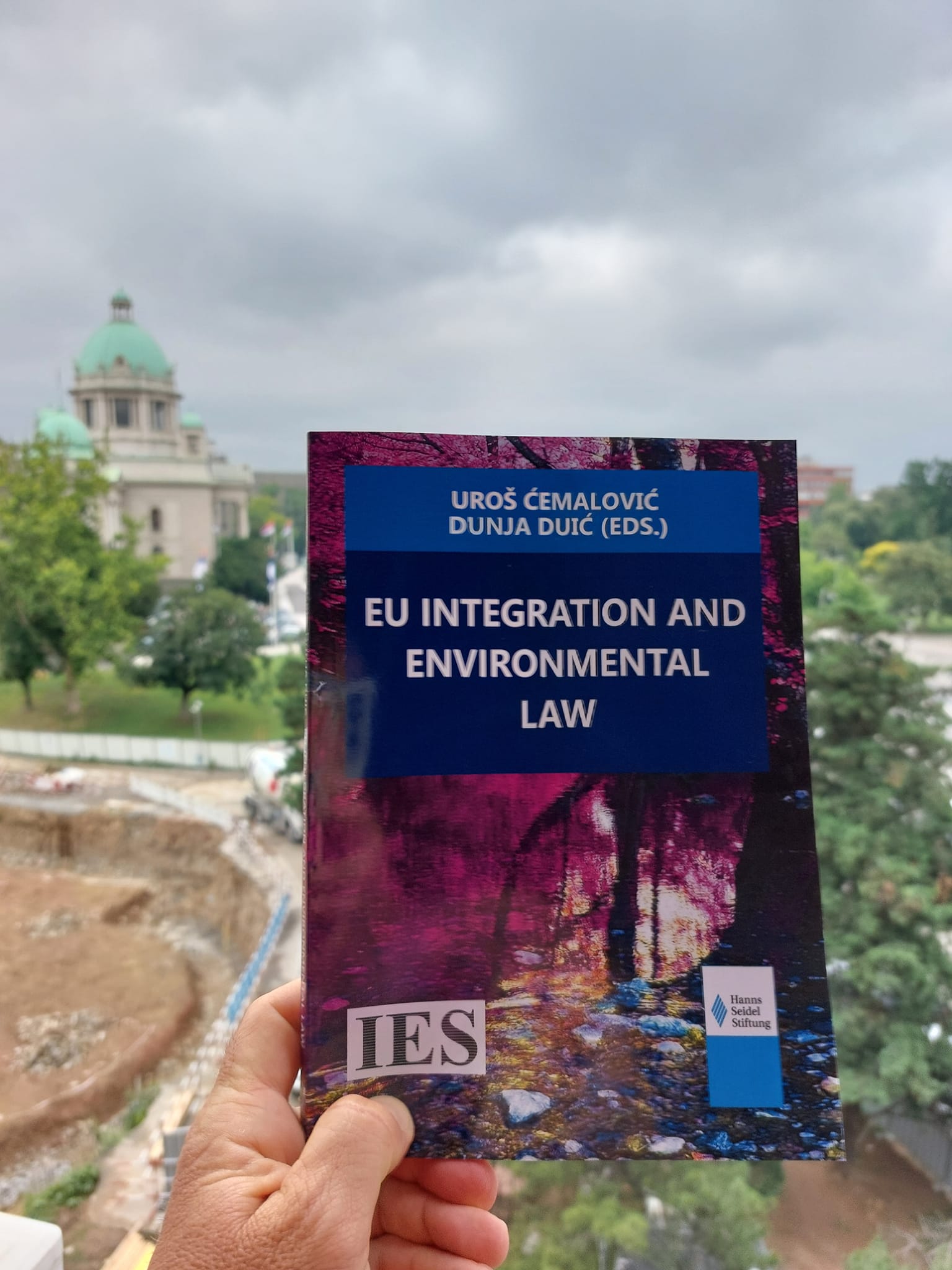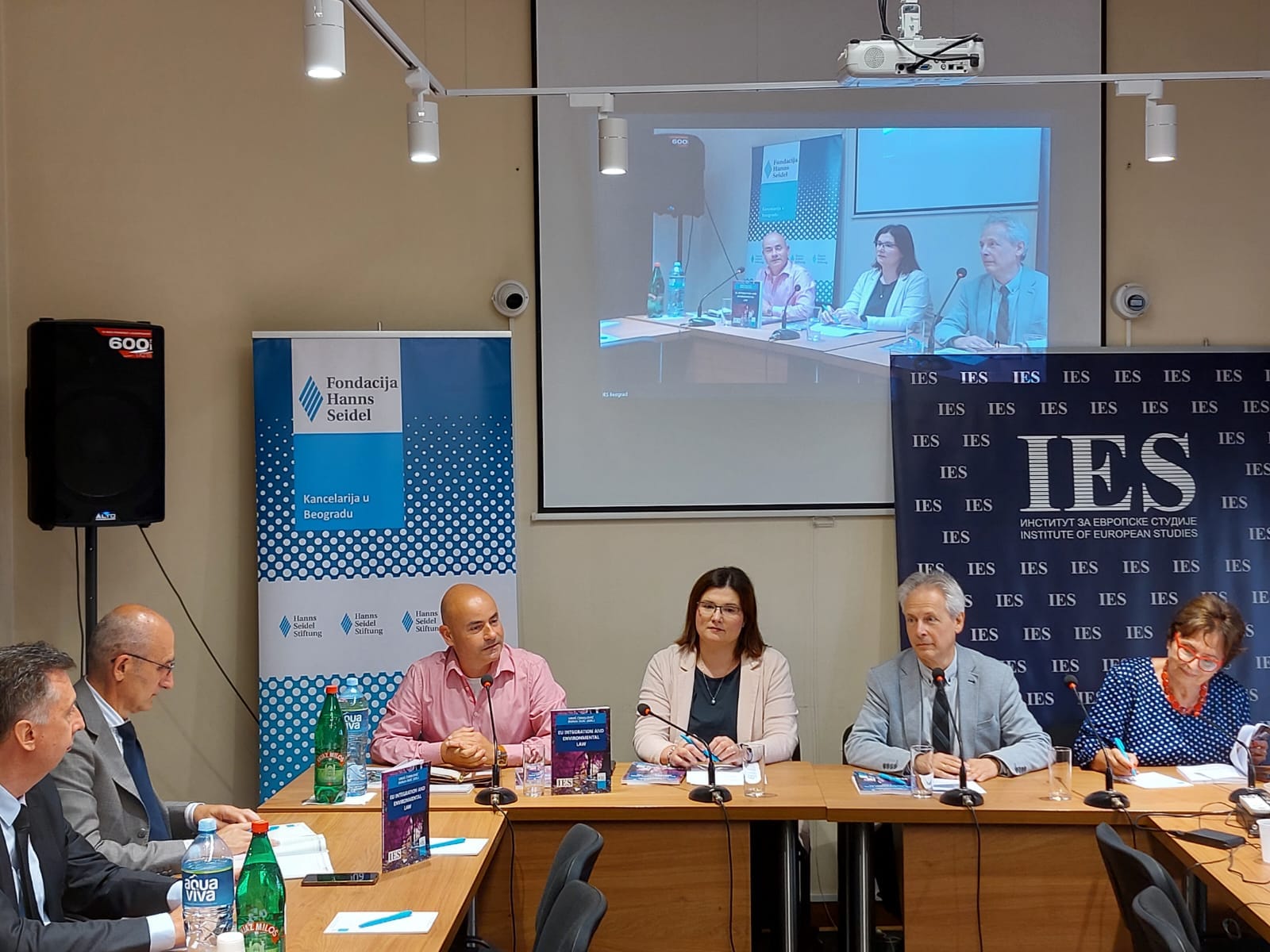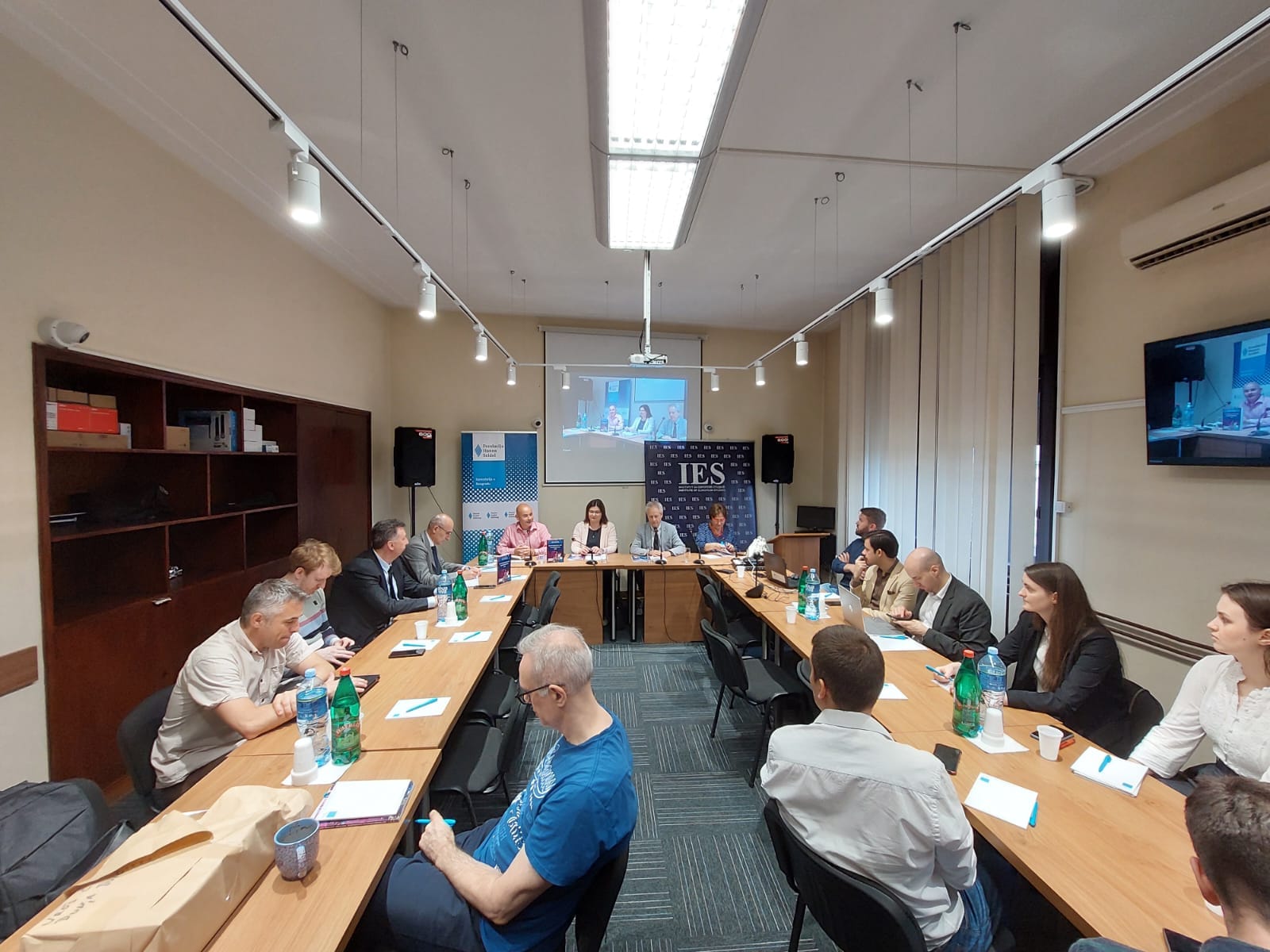The project "Harnessing Local Potential: Community-Led Strategies for Sustainable Heating in the Western Balkans" successfully completed, with the support of the Open Society Foundations - Western Balkans
The policy paper “Harnessing Local Potential: Community-Led Strategies for Sustainable Heating in the Western Balkans” by Uroš Ćemalović, Ph.D., and Jovica Pavlović, Ph.D., offers a comprehensive analysis of how bottom-up, community-driven approaches can accelerate the sustainable heating transition across the Western Balkans (WB6). While current efforts in the region largely focus on large, centralized projects led by national governments and the EU, this paper highlights the untapped potential of local municipalities and communities to drive meaningful change—especially in addressing inefficient, polluting household heating practices.
Key Results and Findings
Regulatory Landscape and Compliance: The paper provides a detailed examination of how the EU’s Energy Community Treaty (ECT) and the Carbon Border Adjustment Mechanism (CBAM) shape energy policy in the WB6. While these frameworks promote decarbonization and market integration, compliance remains uneven across the region due to varying national challenges. The analysis identifies both shared requirements and exceptions relevant to sustainable heating, emphasizing the need for alignment with EU standards to modernize local energy sectors. Local Strategies and Challenges: Focusing on Serbia, Bosnia and Herzegovina, and Montenegro, the research uncovers that many municipalities lack centralized heating systems, forcing households to rely on wood and coal. This reliance leads to severe winter air pollution and deforestation. The study finds that local governments have significant room to maneuver within the EU framework, but face obstacles such as limited resources, insufficient regulatory alignment, and a lack of technical expertise.
Serbia
At the national level, Serbia has introduced several frameworks to promote energy efficiency, such as the ‘Clean Energy and Energy Efficiency for Citizens’ initiative, offering subsidies covering up to 65% of the costs for thermal insulation, boiler upgrades, window replacement, and solar panel installation. Similarly, the ‘Public ESCO Project’ aims to support energy rehabilitation in residential buildings connected to district heating systems by covering half of the investment costs for any neighborhood interested in benefiting from these subsidies. While these central-government initiatives aimed at the local level are important, municipalities have also launched their own initiatives. The City of Novi Sad has awarded as much as 260 contracts for energy efficiency upgrades to interested parties in 2023, such as local households and residential buildings. The city is currently working on developing an ‘Energy Info-Center’, which is planned to offer advice to citizens, so that they can become acquainted with all the potential benefits and subsidies that they can apply for from the local government. At the same time, the City of Niš allocated as much as 12 million RSD (approximately 100,000 EUR) for replacing outdated household furnaces, which were identified as a significant contributor to air pollution during the winter months. Palilula, a municipality of Belgrade City, is currently co-financing insulation improvements, heating system upgrades, and installation of solar collectors. The cities/municipalities of Apatin, Odžaci, and Šid successfully transitioned boiler rooms from fossil fuels to natural gas during the previous three years, while the cities/municipalities of Bečej, Bogatić, Kragujevac, Kraljevo, Kruševac, Novi Pazar, Niš, Pančevo, Paraćin, and Vršac were recently selected by the central government for a subsidy program to introduce renewable energy sources into district heating systems, including the use of heat pumps and solar collectors. The Belgrade municipality of Mladenovac issued a public call for co-financing household energy renovation measures for 2024, while the municipality of Vlasotince organized a public call for the co-financing of energy renovation measures for family houses and apartments during the same year. The measures include window and door replacement, insulation, boiler replacement, and the installation of heat pumps. However, despite these positive initiatives, a common problem persists: municipalities lack sufficiently trained personnel to effectively apply for EU and international funding for energy efficiency projects, as identified in multiple assessments. Without external consultancy or state support, many smaller towns are unable to develop and execute robust strategies for sustainable heating. Therefore, although some of these initiatives are local in character, they still rely on central government funding, expertise and implementation. Furthermore, it is important to mention that there have been concerning examples of potential misuse of funds as a result of this central/municipal government partnership. One highly publicized case involved the municipality of Savski Venac in Belgrade, where significant funds earmarked for improving energy efficiency were controversially allocated to the Red Star Football Club, ostensibly for energy efficiency improvements. Such misallocations highlight systemic vulnerabilities to corruption and diminish public trust in the green transition.
Montenegro
Montenegro’s efforts toward sustainable heating have also been primarily channeled through a similar model of central/local government partnership, particularly through the national ‘Eco Fund’ program. With a total budget of €7.5 million, the program offers grants for thermal insulation installation, energy-efficient joinery, biomass heating systems, high-efficiency heat pumps, and solar water heating and photovoltaic systems. Households in Montenegro can receive up to €10,000 in non-repayable financial support, with subsidy rates varying by municipality. Municipalities like Pljevlja have benefited from targeted programs due to their critical levels of air pollution, receiving an additional €1.7 million for building insulation and renewable heating projects. Bijelo Polje has also seen Eco Fund support, mainly through incentives for purchasing energy-efficient air conditioning units. However, as in Serbia, Montenegrin municipalities often struggle with administrative inertia. Although the national framework provides substantial financial resources, local uptake has been uneven, limited by bureaucratic inefficiencies and a lack of strategic planning expertise. Hence, local municipalities heavily rely on central government initiative and capacities to implement green transition projects, especially those in the domain of energy conservation and efficient heating.
Bosnia and Herzegovina
Bosnia and Herzegovina’s political complexity, with its decentralized governance structure divided between the Federation of Bosnia and Herzegovina and Republika Srpska, has contributed to a highly diverse – but still very inefficient – approach to sustainable heating at the municipal level. At the entity level, there have been noticeable allocations of funds for green transition projects, with much of those funds going to securing cleaner energy sources and energy conservation. In this regard, within the last five years, the Federation of Bosnia and Herzegovina approved 16.5 million KM for energy efficiency subsidies, including 3 million KM specifically for building insulation. Nonetheless, specific municipal-level strategies aimed directly at transitioning household heating systems to cleaner methods remain rare. While public building renovations (schools, hospitals) have seen investment through international projects like the Bosnia Energy Efficiency Project (BEEP), systemic programs directed at households are still lacking. As a result, municipalities face numerous obstacles, such as the lack of expertise to prepare and manage green transition projects, minimal financial autonomy to allocate significant funds, and fragmented policy coordination between different levels of government. These barriers severely restrict the ability of local governments to play an effective role in the heating transition.
Common Challenges Across the Region
Across Serbia, Montenegro, and Bosnia and Herzegovina, several common challenges undermine municipal-level strategies for sustainable heating. First of all, there is the issue of administrative capacity, as most municipalities lack dedicated energy efficiency offices or trained staff to manage complex funding applications and project implementations. Successful pilot programs, such as those concerning projects implemented in Novi Sad and Niš, represent rare examples that demonstrate that with proper planning, municipal strategies can yield tangible results. Second and related to this, there is the problem of dependence on central governments, as most municipalities often depend on national ministries for direction and financial support, reducing their initiative and responsiveness to local needs. Third, subsidies often cover only a fraction of the population, as existing programs are often limited in scope due to insufficient funding. Finally, there is the risk of funding misuse and corruption, as the Savski Venac case in Serbia exemplifies, where public money intended for environmental improvements was diverted toward unrelated or dubious projects.
Community-Led Solutions: The results demonstrate that empowering local authorities and communities can yield substantial benefits in energy efficiency and environmental protection. The most effective strategies identified include: Promoting decentralized, renewable heating solutions tailored to local needs. Supporting household-level energy efficiency improvements, such as better insulation. Facilitating access to financing and technical assistance for local projects. Encouraging participatory policy-making to ensure community buy-in and sustainability. Policy Recommendations: The paper concludes with actionable recommendations for both central and local authorities, advocating for: Stronger integration of EU energy and climate policies at all governance levels. Enhanced support for local governments to develop and implement sustainable heating strategies. Cross-border cooperation and knowledge sharing among WB6 municipalities to accelerate best practice adoption.
Impact
By shifting focus toward community-led, bottom-up strategies, the paper argues that the Western Balkans can achieve faster, more inclusive progress toward sustainable heating. This approach not only addresses environmental challenges like air pollution and deforestation but also strengthens local capacity, supports EU accession goals, and improves the quality of life for citizens throughout the region.
Uspešno okončan projekat podržan od strane Instituta za budućnost života (Future of Life Institute, California)
U periodu od maja do novembra 2024. godine, Centar za ekologiju i održivost je uspešno realizovao projekat „AI i edukacija o ublažavanju klimatskih promena – od problema Kralja Mide do zlatne prilike?“. Ocenili smo uticaj veštačke inteligencije na postizanje cilja 13.3 SDG, sa fokusom na obrazovanje o ublažavanju klimatskih promena. Kroz dva upitnika prikupljeni su podaci o nivou inkluzije obrazovnih alata zasnovanih na veštačkoj inteligenciji na univerzitetima, nivou interoperabilnosti ovih alata u prirodnim i društvenim naukama i o tome kako se edukatori odnose prema njima. Glavne uočene tendencije su zatim ekstrapolirane za period 2024-2030.



Promocija knjige Evropske Integracije i Ekološko Pravo: EU INTEGRATION AND ENVIRONMENTAL LAW
U Institutu za evropske studije 13. juna 2024. godine predstavljena je knjiga „EU integracije i pravo životne sredine“, koju su uredili Uroš Ćemalović i Dunja Duić.
